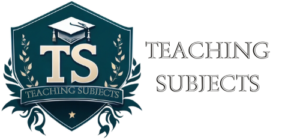Introduction
Choosing a college is one of the most significant decisions a young adult will make, impacting future career opportunities, financial stability, and personal growth. With the rising costs of tuition and the varied landscape of educational institutions, making informed decisions about higher education has never been more crucial. Understanding the key considerations and alternatives to traditional college education ensures students select a path that aligns with their goals, values, and financial circumstances. This guide provides the necessary insights and tools to navigate the complexities of choosing the right college.
Factors to Consider Before Choosing College

- Tuition and Financial Aid: Consider the overall cost of attendance, including tuition, room, board, fees, and supplies. Explore scholarships, grants, and financial aid opportunities to offset expenses.
- Academic Programs: Ensure the college offers strong programs in your fields of interest. Look for accreditations, faculty qualifications, and available resources such as labs and libraries.
- Location: Think about the geographic location. Whether you prefer an urban, suburban, or rural setting can impact your lifestyle and opportunities during and after college.
- Campus Culture: Visit campuses to get a feel for their atmosphere. A supportive and engaging community can significantly influence your college experience.
- Size of the Institution: Determine if you prefer a large university with diverse opportunities and resources or a smaller college with a more personalized approach and tighter community.
- Internship and Job Placement Programs: Research the college’s connections with industries and their support for internships and job placements to enhance your career prospects post-graduation.
- Extracurricular Activities: Assess the availability of clubs, sports, organizations, and other extracurricular activities that enrich your college experience and provide networking opportunities.
- Housing: Investigate on-campus and off-campus housing options, considering factors like cost, availability, and quality of living arrangements.
- Student Support Services: Look into available support services such as academic advising, mental health resources, career counseling, and tutoring, as these can significantly aid your success and well-being.
- Alumni Network: A strong alumni network can provide mentorship, internship, and employment opportunities, adding value to your degree long after graduation.
Alternatives to Traditional College
- Trade Schools: These institutions offer specialized plumbing, electrical work, and cosmetology training. Programs are typically shorter and more affordable than traditional college degrees, with a strong focus on hands-on skills. Trade schools are the best alternatives to traditional college education.
- Community Colleges: Community colleges provide two-year associate degrees and certification programs. They are a cost-effective option with flexible scheduling, often allowing students to transfer to a four-year institution if they continue their education.
- Online Courses and Degrees: Many universities and platforms like Coursera, Udacity, and edX offer online courses and degree programs. This flexible option allows students to learn at their own pace and often at a lower cost.
- Apprenticeships: Apprenticeships combine on-the-job training with classroom instruction. Industries such as construction, healthcare, and information technology offer apprenticeship programs that can lead directly to employment.
- Military Service: Joining the military provides education benefits such as the GI Bill, which can pay for college tuition, vocational training, and other educational programs, alongside valuable work experience and discipline. Many choose military service as alternatives to traditional college education.
- Gap Year Programs: Taking a gap year to travel, volunteer, or work can provide real-world experience, develop independence, and help students refine their goals before committing to a specific educational path.
- Entrepreneurship: For those with a business idea and the drive to work independently, entrepreneurship can be an alternative to traditional education. Resources like business incubators, mentorship programs, and online tutorials can provide guidance and support.
- Professional Certifications: Earning certifications in information technology, project management, or healthcare can enhance one’s skills and employability. These programs are often shorter and less expensive than a college degree.
- Bootcamps: Intensive boot camps, especially in tech fields like coding, data science, and cybersecurity, offer condensed training programs that prepare students for specific careers within months rather than years.
Decision-Making Tips
- Prioritize Your Goals: Identify what you value most in your education and career. Whether it’s affordability, location, or a specific program, knowing your priorities will help you make clearer decisions.
- Conduct Thorough Research: Explore all available options by visiting college websites, attending information sessions, and speaking with current students and alums. Gathering comprehensive information will help you make an informed choice.
- Consider Long-Term Outcomes: Evaluate the long-term benefits of your decision, including potential earnings, job satisfaction, and career growth. Think about how each option aligns with your future aspirations.
- Create a Pros and Cons List: Make a detailed list of the advantages and disadvantages of each option. This can provide a visual comparison and make it easier to weigh your choices.
- Seek Professional Advice: Utilize resources like career counselors, academic advisors, and financial aid officers who can offer expert guidance tailored to your situation.
- Visit Campuses: If possible, visit potential colleges to understand the environment, facilities, and community. Experiencing the campus firsthand can provide insights that online research cannot.
- Involve Family and Friends: Discuss your options with family and friends who know you well. Their perspectives and support can provide valuable insights and help you feel more confident in your decision.
- Stay Flexible: Be open to adjusting your plans based on new information or changing circumstances. Flexibility can help you navigate unexpected opportunities or obstacles that may arise.
- Evaluate Financial Implications: Carefully consider the financial aspects of each option, including potential debt and long-term economic impact. Ensure you understand the total cost and how it fits into your financial goals.
- Trust Your Instincts: While data and advice are essential, intuition plays a crucial role. Choose the right path for you; personal satisfaction is key to your overall success and well-being.
Conclusion
In conclusion, choosing the right educational or career path is a deeply personal and multifaceted decision. From evaluating traditional college options, such as academic programs, housing, and support services, to considering alternatives to traditional college education like trade schools, community colleges, online courses, and apprenticeships, it’s essential to prioritize your goals, conduct thorough research, and consider long-term outcomes. Creating a pros and cons list, seeking professional advice, visiting campuses, involving family and friends, staying flexible, evaluating financial implications, and trusting your instincts can guide you toward a decision that aligns with your aspirations and provides a foundation for future success. Ultimately, the best choice fulfills your personal and professional ambitions, setting you on a fruitful and fulfilling path.
Book Recommendations
“College (Un)Bound: The Future of Higher Education and What It Means for Students” by Jeffrey J. Selingo
“The New York Times Guide to Essential Knowledge: A Desk Reference for the Curious Mind” by The New York Times
“You Majored in What?: Designing Your Path from College to Career” by Katharine Brooks
“Debt-Free U: How I Paid for an Outstanding College Education Without Loans, Scholarships, or Mooching off My Parents” by Zac Bissonnette
“Do What You Are: Discover the Perfect Career for You Through the Secrets of Personality Type” by Paul D. Tieger and Barbara Barron
















